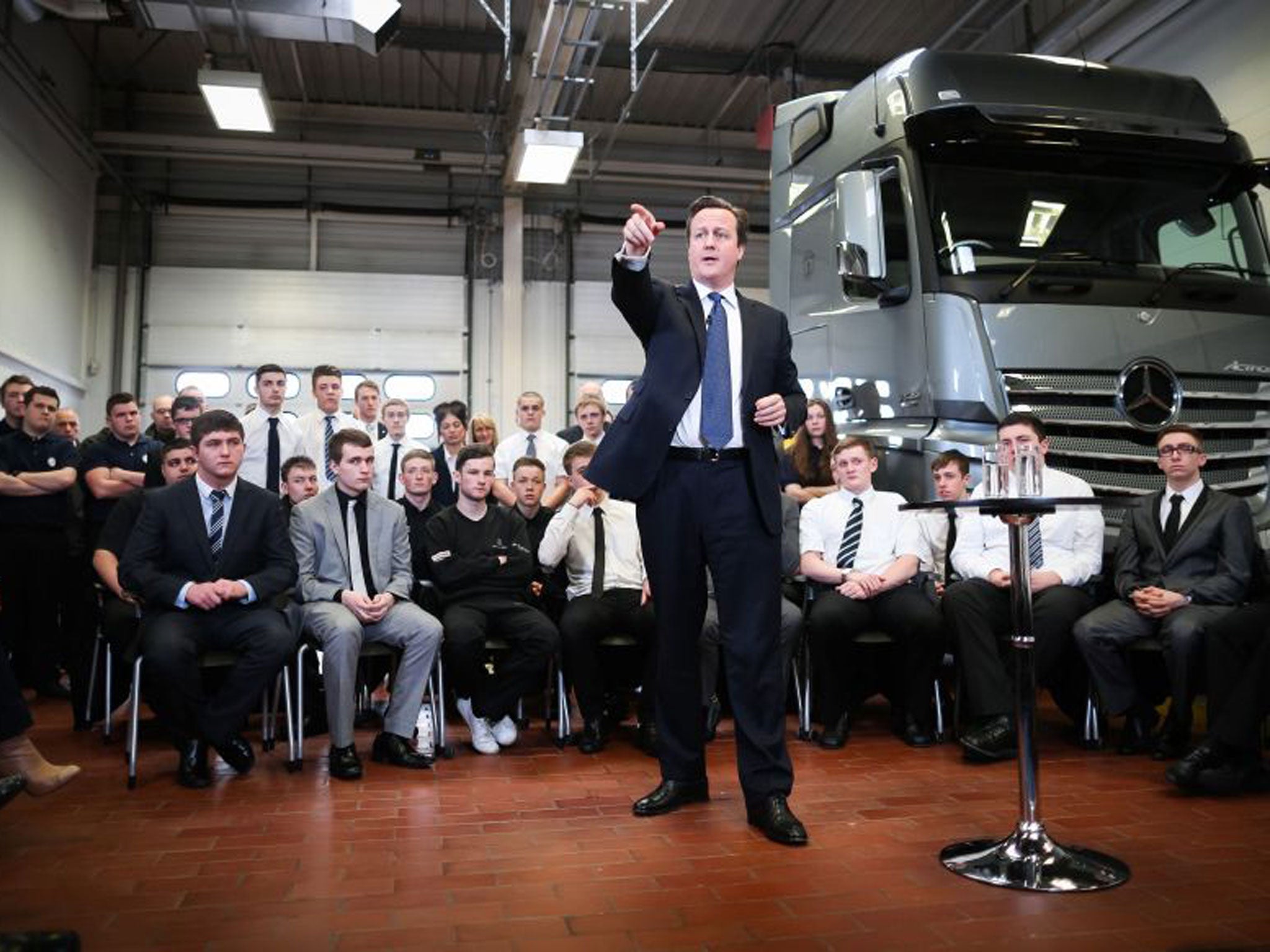David Cameron told: stop protecting health and aid budgets
PM is facing pressure from all sides to end ring fences protecting spending

Your support helps us to tell the story
From reproductive rights to climate change to Big Tech, The Independent is on the ground when the story is developing. Whether it's investigating the financials of Elon Musk's pro-Trump PAC or producing our latest documentary, 'The A Word', which shines a light on the American women fighting for reproductive rights, we know how important it is to parse out the facts from the messaging.
At such a critical moment in US history, we need reporters on the ground. Your donation allows us to keep sending journalists to speak to both sides of the story.
The Independent is trusted by Americans across the entire political spectrum. And unlike many other quality news outlets, we choose not to lock Americans out of our reporting and analysis with paywalls. We believe quality journalism should be available to everyone, paid for by those who can afford it.
Your support makes all the difference.David Cameron has rejected pressure from left and right for him to demolish the “ring fences” which protect the health, schools and overseas aid budgets from cuts.
The Prime Minister rebuffed Vince Cable, the Liberal Democrat Business Secretary, who has joined some Conservative ministers in calling for an end to the special protection for the three areas as they try to head off further cuts to their own departments.
From the Tory backbenches, Liam Fox, the former Defence Secretary, added his voice to the demands. He proposed a three-year public spending freeze to save £70.4bn a year, providing funds to cut taxes as well as reduce the deficit. "We must also ask whether ring-fencing departmental budgets makes sense in a period of prolonged austerity,” he said.
Mr Cable, who called last week for higher borrowing to find pro-growth building projects, irritated the Prime Minister again today by calling publicly for a new approach to how the public spending cake is shared out when the Cabinet agrees £10bn of cuts for 2015-16.
The Business Secretary said: “When you have 80 per cent of all government spending that’s ring-fenced, it means all future pressures then come on things like the army, the police, local government, skills and universities, the rest that I’m responsible for. So you get a very unbalanced approach to public spending. I went along with the overall ring-fencing approach in this Parliament – as part of the Coalition we had to work as a team – but I think as a long term approach to government spending, it isn’t very sensible.”
But Downing Street insisted that the Prime Minister's support for protecting the NHS, schools and aid was unchanged. Mr Cameron said: "We made a very clear promise before the last election that yes, we were going to have to take difficult decisions, yes, we were going to have to make some very difficult and painful cuts but we wouldn't cut the NHS budget. I think it's really important for people to know that. It's really important for people to know how much I care about it. The NHS was there for me and my family, I want it to be there for other people's families too."
In a report published tomorrow, the independent Reform think tank will says Mr Cameron should give George Osborne the go-ahead to scrap the special protection for health, schools and pensioner benefits in his Budget next Wednesday. It said the three areas account for two out of every five pounds spent in the current financial year and would soak up 60 per cent of the spending rise between 2011-12 and 2014-15.
“Cuts have fallen on departments on political grounds, rather than to improve value for money,” Reform said. “This is like putting the public finances on a crash diet that actually reduces the chances of long-term weight loss.”
As Mr Osborne finalised his main Budget measures with Mr Cameron, Mr Clegg and Danny Alexander, the Lib Dem Chief Treasury Secretary, Labour sought to exploit a split inside the Coalition over whether to impose a mansion tax on homes worth more than £2m.
Labour has tabled a motion for debate in the Commons tomorrow which calls for a mansion tax and has challenged the Lib Dems to support it.
But Mr Cable, who championed an idea in opposition which Labour has recently adopted, said tonight the Lib Dems would not support a Labour motion “designed exclusively to play cynical party political games.” He said: “Parties should be judged on what they deliver on fairer taxes, rather than what they say about them. In Government, Labour refused to back our mansion tax.”
A government amendment to Labour’s motion will allow Lib Dems in Parliament to back their long-held policy. “Although we are in coalition with the Conservatives, we have different views on the desirability of a mansion tax,” said Mr Cable.
Join our commenting forum
Join thought-provoking conversations, follow other Independent readers and see their replies
Comments